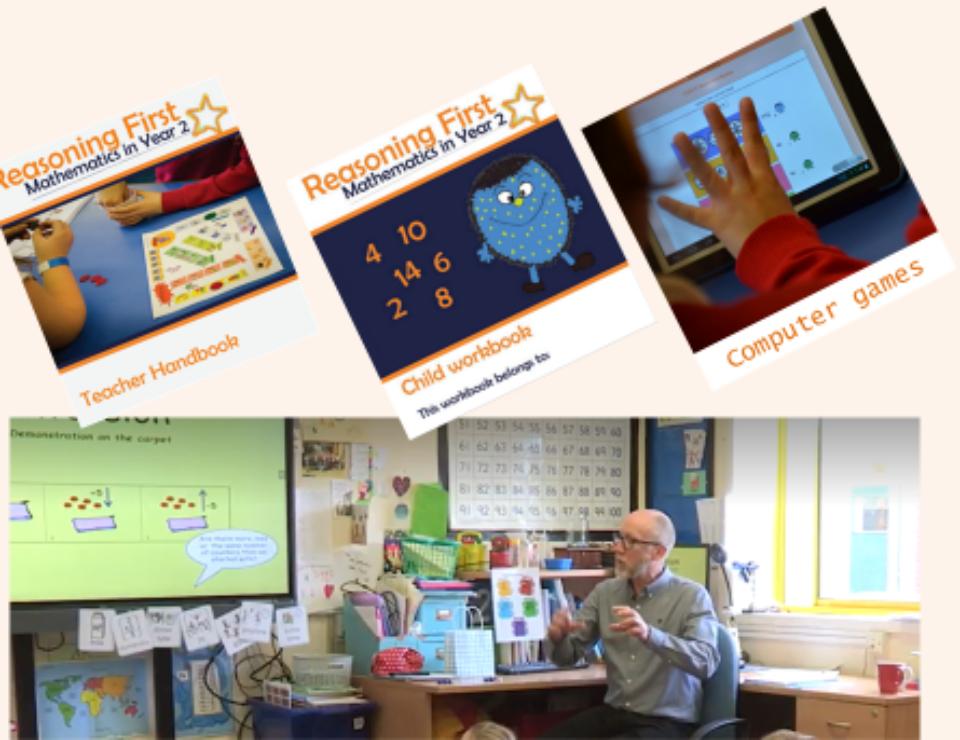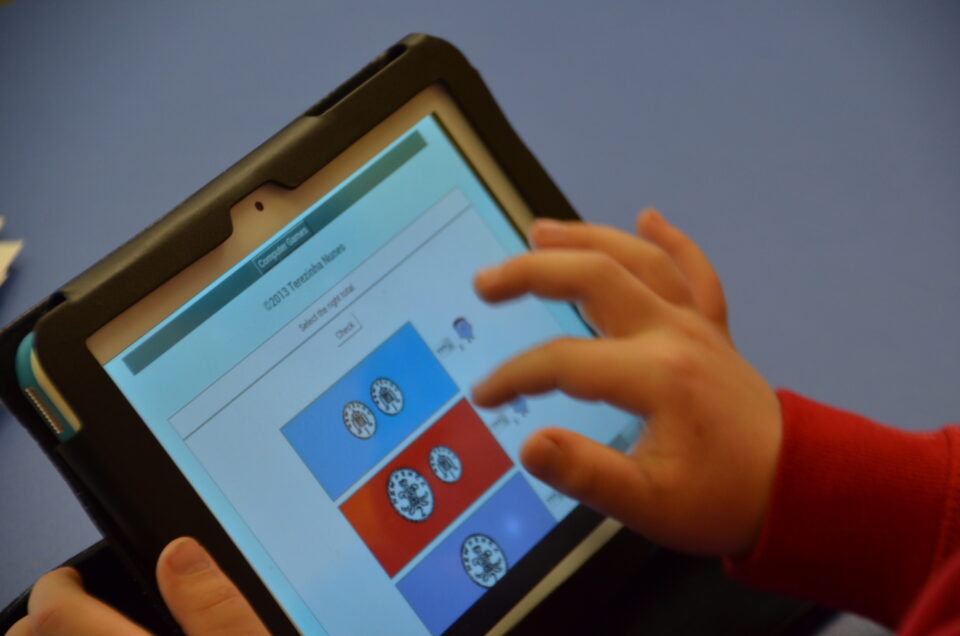
Training
Teachers reflect about the nature of quantitative reasoning and how understanding relations between quantities supports understanding relations between numbers.

Enter your search term here…
Suggested searches
The programme Mathematical Reasoning in Year 2 was evaluated by the EEF. It had an impact of three extra months of progress on children's mathematical development. Become a Mathematical Reasoning expert teacher: take the online professional development course to prepare you to deliver the programme.

Mathematical Reasoning in Year 2 is a whole class research based programme developed by professors at University of Oxford in collaboration with teachers. This supplementary programme enriches the curriculum for all pupils by promoting children’s quantitative reasoning and number sense. Children learn about additive and multiplicative reasoning by thinking about relations between quantities. Number sense activities focus on the additive composition of number and the inverse relation between operations.
The 12 lessons are taught once a week as the maths lesson for the day, saving preparation time. The game-like activities at increasing levels of challenge are appealing to children. A TA should support implementation when children are split into groups for differentiation in the second half of the lesson.
Participate in the online course, receive the Teacher Handbook and Child Workbooks and get your children playing online maths games. The whole school can complete the online course and nurture children’s mathematical reasoning even more.
Watch the video about the programme and the online course by clicking on the image.
Deepens teachers’ appreciation of children’s implicit knowledge and inspires children to use their own reasoning.
Children are encouraged to demonstrate their thinking using manipulatives and drawings. Learning to explain their reasoning through actions when they cannot find the words increases their confidence.
Children think about relations between quantities, relations between numbers and relations between operations. This provides a solid foundation for problem solving, number sense and arithmetic.
Working on the same concepts at increasing levels of challenge creates the opportunity for all children to attain higher levels of maths skills. Improvement is measurable by standardised assessments.
Computer games offer opportunities for additional thinking about the concepts and extra skill practice. The children absolutely love the computer games as well as the games played in the classroom.
An online professional development course is available to prepare teachers to deliver the programme. It includes videos by the Oxford University Reasoning First team, explaining the theory and aims of the programme and videos of teachers using the programme. It also includes activities to encourage reflection on mathematical ideas and on how children learn.
The classroom teachers and the TA who will support delivery complete together five modules before starting to deliver the programme. Time spent on these modules is equivalent to a training day. A final compulsory module fosters thinking about sustaining and widening gains. Three optional modules are available to promote this reflection.
Upon registration, all printed materials are sent to schools and teachers are assigned to a group for joint participation in three live webinars (1.5 hours each), to provide support and discussion across schools.
The course is hosted by Oxford University; its creation was funded by the DfE and the EEF.

All programme specific resources are provided including individual workbooks for the children and cards for playing games.

Teachers reflect about the nature of quantitative reasoning and how understanding relations between quantities supports understanding relations between numbers.

Pre-prepared PowerPoint slides are used to present problems that invite the children to think about relations between quantities and between numbers.

Children have access to computer games where they can independently practise the skills and concepts that the teacher has presented in the whole class lessons.
The programme can be covered in 12 lessons delivered to the whole class using PowerPoint slides, that are annotated with guidance for teachers.
Children develop their understanding of numbers and number sense alongside developing their quantitative reasoning and problem solving.
The activities are ordered to extend children’s reasoning about mathematics gradually. You can use the lessons once a week from the beginning of Year 2 to create a solid basis for your teaching of mathematics.
After you register, you can download a taster lesson for free. In order to continue with the programme, you will need to purchase it.
You can order children’s workbooks and cards for playing the games.
Check the cost of available options.
Download the research brief from the Home Page, register to access the sample lesson, and get started right away.
Make sure to read the research brief before starting.
In order to continue with the programme, you will need to purchase it.